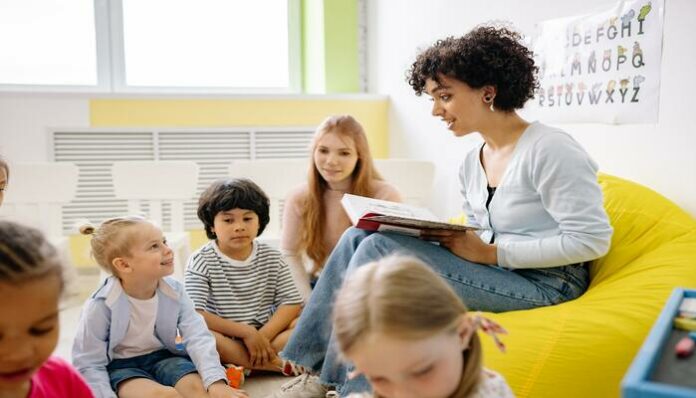
I’m 24, and have grown up with an older autistic brother. This meant that while I was growing up, I heard about autism and other disabilities on a daily basis. I understood what “disability” meant at a young age, and it was something that never seemed “strange” or “weird” to me.
I had an advantage over other children my age. While growing up, I would see others with disabilities and immediately smile at them. They were like my brother, and to me that was cool.
As I got older, I suddenly realized that many people weren’t as accepting or understanding of disabilities as I was. If my brother was in public and started screaming, or accidentally bumped into them, we’d get stared at. It made me so angry, I didn’t understand why people weren’t accepting of my brother. Yes, I understand that his behaviors might be disruptive towards others, but he’s allowed to be out in public just as much as anyone else.
Just because someone has a disability, it doesn’t mean they can’t live lives like everyone else.
Now that I’m an adult, and working with school-age children on a daily basis, I’ve noticed that children still don’t know much about disabilities. When I’ve seen children encounter a peer with autism, they tend to stare and get annoyed with the individual because they’re different.
It’s 2022, we need a change.
Disabilities aren’t going away. We talk about gun laws, politics, along with so many other controversial topics so comfortably and normally. And yet we want our students to be understanding about topics like this, but we still don’t explain the topic of disabilities to its full extent. Society makes it seem like such a taboo subject, and that doesn’t make sense to me.
As of 2021 the rate for autism diagnosis was 1 in every 44. More likely than not, kids are going to be introduced to someone with autism at a young age and they may not even realize at the time.
As teachers, parents, and trusted adults for young children, we need to start explaining disabilities at a younger age. Students shouldn’t be learning about autism or any other disability as a teenager. Take the time to show children what disabilities might look like, and how they can affect those around them. Let’s teach kids that it’s ok, to be different, and it’s ok to ask questions about these differences. The more we teach them about disabilities at a young age, the more likely they are to be more accepting of their peers as they become older. Let’s be the change that we need right now.
Here are some ways to introduce kids to disabilities:
- Read Books
So many kids are visual learners. Read a book to them about disabilities to help them develop a better understanding of the topic. Here’s a list of books to help you get started.
- Answer Questions
Kids are naturally curious about life and want to know more about what is occurring around them. If your student/ child asks a question of someone with a disability, do the best you can to answer them. If you don’t know, look it up with them together, and make it a learning experience.
- Make it positive
Oftentimes, we think of the word “disability”, and think of the things that people can’t do. Instead, change the perspective and explain what the person you’re speaking can do (“They can speak with you because they have a communication device”, “they are able to walk across the street because their service dog helps them, etc). This helps kiddos realize that individuals with disabilities are more like them than they may realize.
- Introduce them to others with disabilities
Our kiddos may encounter someone with a disability at any time or day. If you’re at the park and they see another child around their age who seems different and wants to play, or communicate, let them (under the proper circumstances). This not only gives them the chance to learn something new and potentially make a new friend, but it will also put a smile on both party’s faces.
- Be kind
In my opinion, this is the number one rule in life. Always try to be kind to those around you whether they have a disability or not. Let’s teach our students to be accepting of all students as soon as they walk through our doors. We all need a little kindness in the world, and it can start with us.
It’s 2022, let’s stop making disabilities a taboo topic. Open up and speak about the topic with our students and children of any age. There needs to be a change, and we’re the adults. Let’s start now.
Featured Photo by Vlada Karpovich on Pexels



















I spend a lot of time raising tolerance in my kids.